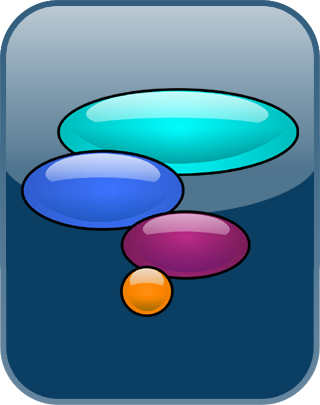Jungian Functions Test
Based on the Work of Myers, Briggs, and Jung
At higher levels of study, Jung's personality theory delves into the notion of cognitive functions. This personality assessment enables you to assess your scores across the eight Jungian functions, as defined by Jung, Myers, Briggs, and others.
What are your Jungian cognitive functions? For each of the following statements, indicate how well it resonates with you below.
Question 1 of 80
I swiftly use pieces of disparate information as stepping stones to form a larger theme in my mind while still recognizing each piece of information as separate and distinct.
| Disagree | Agree |
NEXT
The IDRLabs Jungian Functions Test was developed by IDRlabs in collaboration with S. Kim.
The eight cognitive functions are based on Carl Jung's theory of personality and were further developed by various theorists, including Myers, Briggs, and others. These functions represent different ways individuals perceive information and make decisions. They are often organized into four pairs of opposing functions:
Extraverted Thinking (Te): This function focuses on organizing and structuring information in an objective and logical manner. Individuals with strong Te tend to prioritize efficiency, effectiveness, and logical analysis in their decision-making processes.
Introverted Thinking (Ti): Ti involves internal analysis and understanding of information. Individuals with strong Ti prefer to analyze ideas and concepts internally, often seeking to understand underlying principles and logical frameworks.
Extraverted Feeling (Fe): Fe involves an outward focus on understanding and harmonizing with the emotions and needs of others. Individuals with strong Fe are often empathetic, compassionate, and adept at recognizing and responding to social cues.
Introverted Feeling (Fi): Fi involves an internal focus on personal values, beliefs, and emotions. Individuals with strong Fi prioritize authenticity, integrity, and personal congruence, often making decisions based on their internal moral compass.
Extraverted Sensing (Se): Se is attuned to immediate sensory experiences and surroundings. Individuals with strong Se tend to be present-focused, adventurous, and responsive to sensory stimuli in their environment.
Introverted Sensing (Si): Si involves the internal organization and recall of past experiences and sensory information. Individuals with strong Si value tradition, stability, and consistency, often relying on past experiences to inform their present decisions.
Extraverted Intuition (Ne): Ne is oriented towards exploring possibilities and generating new ideas. Individuals with strong Ne are imaginative, curious, and open to new experiences, often seeing multiple potential outcomes in any situation.
Introverted Intuition (Ni): Ni involves insight and understanding of underlying patterns and connections. Individuals with strong Ni have a tendency to perceive the deeper meaning behind events and information, often envisioning future possibilities and outcomes.
Each individual typically has a preferred or dominant cognitive function, which influences their perception and decision-making processes. Additionally, the interaction and interplay between these functions contribute to the complexity of an individual's personality.
The cognitive functions play a crucial role in shaping an individual's personality and behavior, influencing how they perceive the world, process information, and make decisions. Understanding these functions can provide valuable insights into various aspects of human behavior and interpersonal dynamics.
One key aspect of the cognitive functions is their hierarchical organization within an individual's psyche. Jung proposed that each person has a dominant function, which tends to be the primary lens through which they engage with the world. This dominant function is supported by an auxiliary function, which complements and enhances the dominant function's strengths. Additionally, individuals also have access to tertiary and inferior functions, which may manifest under certain circumstances or during periods of stress.
Moreover, the cognitive functions interact with each other in complex ways, leading to unique personality profiles and behavioral tendencies for each individual. For example, someone with dominant Extraverted Thinking (Te) may exhibit strong organizational skills and a focus on efficiency, while someone with dominant Introverted Feeling (Fi) may prioritize authenticity and personal values in their decision-making.
Furthermore, the development and integration of the cognitive functions can vary significantly from person to person, influenced by factors such as upbringing, environment, and life experiences. Some individuals may naturally develop certain functions more than others, leading to a diverse range of personalities and cognitive styles.
In practical terms, understanding the cognitive functions can be valuable in personal growth, communication, and conflict resolution. By recognizing and appreciating the different ways people perceive and process information, individuals can foster empathy, adaptability, and effective collaboration in various social and professional settings.
Overall, the study of cognitive functions offers a rich framework for exploring the complexities of human personality and behavior, providing valuable insights into the diverse ways individuals navigate the world around them.
The Cognitive Functions Test is inspired by research into relevant literature and methodological practices. While the Cognitive Functions Test is inspired by fields of research, it cannot be used to provide clinical assessments or an accurate evaluation of your personality. Clinical assessments should always be done in cooperation with a mental health professional. For more information about any of our online tests and quizzes, please consult our Terms of Service.

